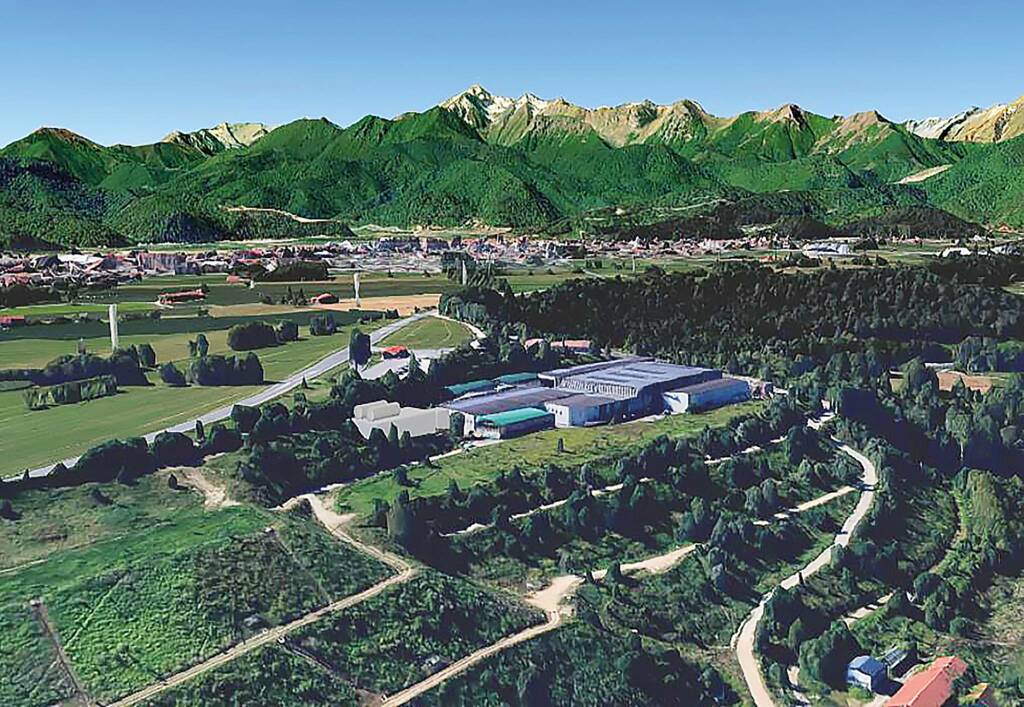Awarded to Entsorga the tender for the technological upgrade of the composting plant with biomethane production of ACSR, the Azienda Cuneese Smaltimento Rifiuti (Cuneo Waste Disposal Company). The plant will be funded by the PNRR, the investment program created to access Next Generation EU resources. This is a relief for the pockets of citizens, who see their share of the cost significantly decreased from the nearly 16 million euros planned, to only 3 million, thanks to the intervention of the National Plan for about 13 million euros.
The Single Environmental Assessment, which is the responsibility of the Province, is currently underway. Once the authorization is obtained, Entsorga will be in charge of the executive design of the plant, to be delivered in November 2024. Installation, commissioning and startup are to take place by June 30, 2026.
The redevelopment of the site will realize a new, virtuous example of circular economy: from the treated waste, not only compost will be obtained to fertilize the soil, but also biomethane, a renewable fuel that significantly reduces greenhouse gas emissions and allows for maximum utilization of the organic waste cycle.
From treating undifferentiated waste to producing biomethane
The Borgo San Dalmazzo plant currently treats 24,000 tons of MSW (Municipal Solid Waste): 1,000 tons of ferrous material are extracted and recovered from it every year, another 14. 000 tons of dry residue, after being further treated, is mixed with non-chlorinated plastics (35 percent) and used as SRF (Solid Recovered Fuel) in the furnace of the Buzzi Unicem cement plant in Robilante, while the remaining organic fraction, about 9,000 tons, is transformed into FOS (Stabilized Organic Fraction).
The proposal to upgrade the composting plant was born 7 years ago, in 2017, when the 54 member municipalities of ACSR Spa requested to add to the composting line also the section for the production of biomethane, one of the cleanest renewable energy sources available nowadays and for this reason incentivized both at the Italian and European level.
Having approved the project by the assembly of mayors, in 2019 the Cuneo Ecological Consortium (CEC), also formed by the 54 municipalities, was given a mandate to participate in the National Recovery and Resilience Plan call for proposals. After suffering some slowdowns due to the pandemic, the Borgo San Dalmazzo plant project, quantified at 12,581,000 euros, was awarded National Plan funds.
A virtuous supply chain, to reduce impacts and close the loop
The inclusion of the biodigester will generally reduce the impacts of the plant, but above all it will optimize the recovery of energy from waste by also extracting biogas from the organic waste, which, transformed into biomethane, will be fed into the grid and also used as fuel for vehicles that perform public services.
In addition, thanks to the new anaerobic digestion section, the “new” compost obtained from the digestate will also be biologically more stable and agronomically more humified, thus also meeting the needs of farmers.
Also renewed is the SRF supply contract between ACSR Spa and Buzzi Unicem Spa, a further piece to close the circle and ensure maximum valorization of the entire waste cycle.
The numbers of the upgrading intervention
With the new upgrading project, the amount of waste entering the plant will also increase. Specifically, the amount of wood and green waste will increase from the current 7,600 to 10,000 t/year, while the Organic Fraction of Municipal Solid Waste-already authorized up to 22,500 t/year-will rise from 10,500 to 35,000 t/year, accommodating all the Forsu produced in the province of Cuneo.
Implementation at the level of waste input (from 18,100 to 45,000 t/year between Forsu and green) and plant integration will result in the production of 11,000 t/year of compost (instead of the 4,500 t/year currently produced) and 2,200 t/year of biomethane (equivalent to 30,800 MWh/year of renewable energy). The production of biomethane and compost will also generate 3,600 t/year of waste (instead of the current 1,500 t/year) that will go to other plants in the province of Cuneo.

